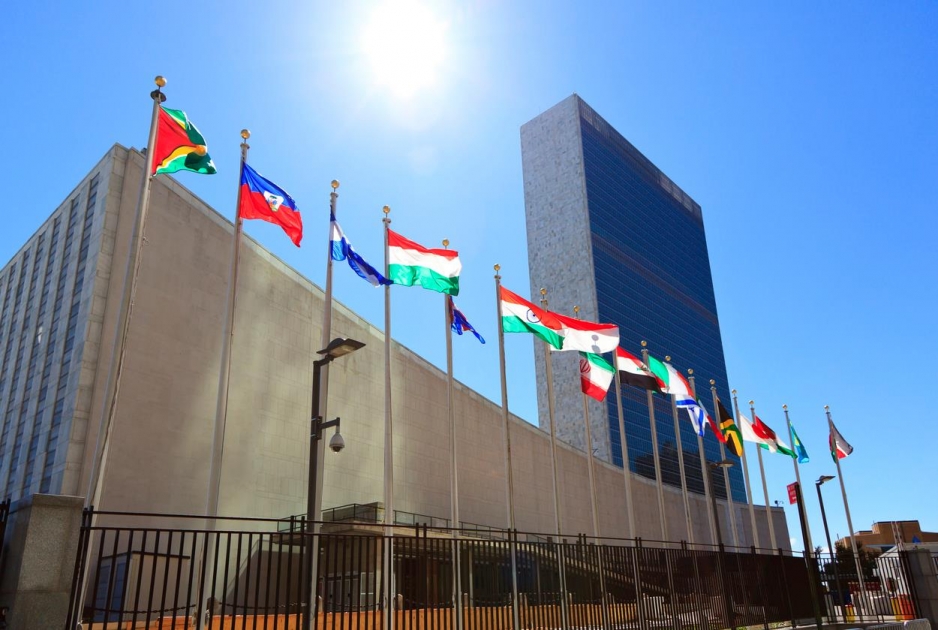Statement by Deputy Permanent Representative Anna Evstigneeva at an open VTC of UNSC members on Sudan
Mme. President,
We thank our briefers, Special Representative Perthes and Under-Secretary-General Khare for the information about the state of affairs in Sudan that they shared. We also followed the speech by Ms.Khair with great attention.
We consider the Juba peace agreement of 3 October 2020 signed by Sudan’s Transitional Government and the “Sudanese Revolutionary Front” as a meaningful step towards achieving national concord and solving the country’s urgent socio-economic problems. Hopefully, other armed groups that so far remain out of the agreement will also join it. We were glad to see Prime Minister Abdalla Hamdok and the Chairman of the Sudan “People’s Liberation Movement-North” Abdelaziz al-Hilu sign the joint agreement on principles on 3 September 2020.
Unfortunately, some Sudanese stakeholders continue to act as spoilers of the peace process. Thus, Abdul Wahid Nur, who refused to join the peace agreements and embark on a dialogue with Khartoum, is one of the causes of antagonism against the Sudan Liberation Army in Jebel Marra. We call on those who can influence this opponent to exert the required pressure on him.
Mme. President,
We find it encouraging that the Sudanese authorities are ready to thoroughly address the underlying causes of conflicts, i.a. in Darfur. Tangible progress in the implementation of the peace agreements is a good proof of that. In this regard, we noted the extension of the Sovereignty Council and formation of a renewed ministerial cabinet.
At the same time, we cannot fail to mention that Sudan encounters numerous challenges that further aggravated during the coronavirus pandemic. The developments in Libya, growing number of IDPs and refugees from the neighboring states negatively affect the situation in Sudan. Against this backdrop, the economic crisis and social tension are exacerbating. That is why it is crucial not to postpone the implementation of initiatives aimed at economic recovery and peacebuilding.
Mme. President,
We are convinced that Sudan is living through a critical stage where it has to implement the peace agreements and respond to the mentioned challenges. To do so, Sudan will need broad international support, and Khartoum is entitled to count on such support.
We welcome the appointment and assuming of office of a new Head of the UN Integrated Transition Assistance Mission in Sudan (UNITAMS). Mr. Volker Perthes, we wish you every success, and count on your “good offices” in bringing all Sudanese stakeholders “under the roof” of the Juba Peace Agreement.
We also welcome your first steps down the path of maintaining well-balanced contacts with the two branches of Sudanese authorities. It is of great importance that you support their efforts aimed at ensuring domestic stabilization and implementing the Constitutional Declaration of 17 August 2019.
We count that the activity of UNITAMS will enhance Khartoum’s capacity to act on the key tracks (first of all in the area of peacebuilding), promote economic reforms, carry out a sustainable security sector reform, and maintain peace and legal order at the domestic level. It is important to both stay united in the face of political signals and enhance economic support for Sudan in order to let the country solve the key outstanding issues. Another vital task in the UNITAMS mandate is assistance with mobilization of resources and coordination of humanitarian aid.
We believe that Sudan’s exclusion from the US list of state-sponsors of terrorism in December 2020 will add to this task. As for the Security Council sanctions regarding Sudan, we expect their soonest review and subsequent adaptation to the reality on the ground.
Mme. President,
Speaking about Darfur, the dynamic there has not undergone any significant negative changes. Sporadic inter-communal clashes in some states do not change the overall situation. Prompt and well-coordinated response of the authorities to all incidents, as well as Sudan's National Plan for Civilian Protection which is being implemented at the moment prove the eagerness of Khartoum to ensure comprehensive stabilization. It is high time we paid primary attention to economic recovery and development of this region – something that the new UN Mission is designed to help with.
We believe that UNAMID successfully coped with all its tasks. We proceed from the assumption that UNAMID personnel will have been completely withdrawn by 30 June in line with UNSC resolution 2559. We commend the work that UN Secretariat’s leadership carries out on the ground, in particular the work of USG Khare in terms of establishing dialogue with the local authorities in order to ensure seamless and safe drawdown of UNAMID.
Thank you.
